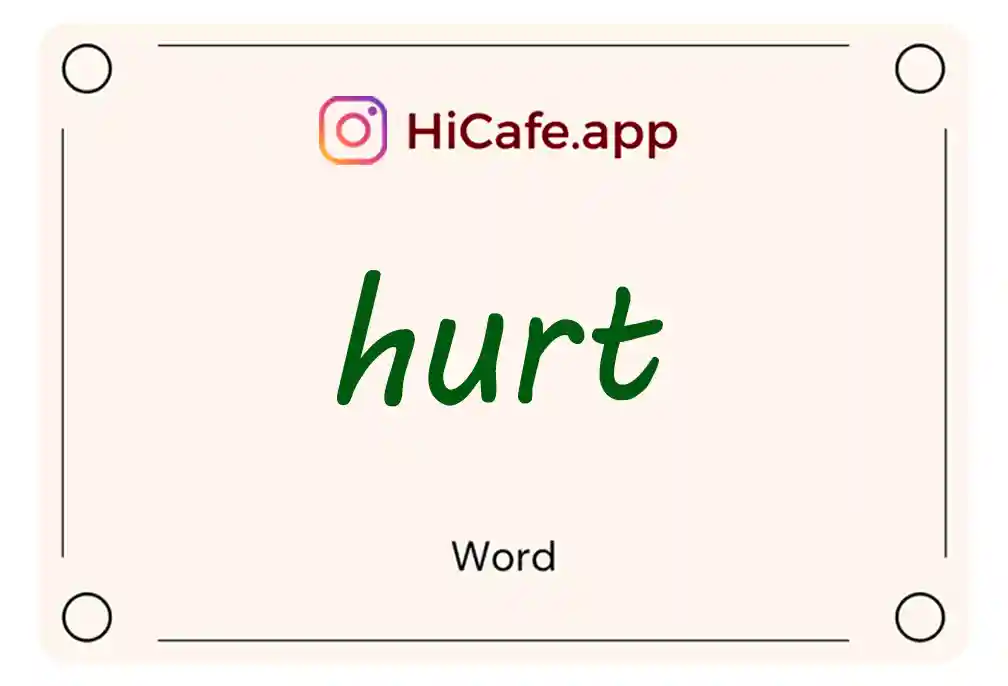
Word of the Day: Hurt
A person who is hurt experiences some sort of physical or mental pain. You can use this word to talk about any part of your body.
The verb “hurt” can be transitive or intransitive. A transitive verb is followed by an object:
- Joe hurt his back. (The word “back” is an object.)
- Rita hurt her finger. (The word “finger” is an object.)
An intransitive verb doesn’t require an object. The sentence can end with the verb:
- Joe’s back hurts.
- Rita’s finger hurts.
- My eyes hurt. (Notice the difference between the singular and the plural in the present tense?)
You often hear “hurt” in the passive voice:
- Joe’s back was hurt in an accident.
- Several people were hurt in the fire.
- The boy’s feelings were hurt by the girl’s rude comments.
- John and Lisa’s chances of getting a loan have been hurt by their poor credit history.
The verb “hurt” can also be used to describe a problem:
- He hurt his chances of getting the job by arriving at the interview late.
- High oil prices hurt the economy.
- High prices on food hurt consumers.
- A long separation can hurt a relationship.
- It doesn’t hurt to practice before a game. In fact, it improves the team’s chances of winning.
There’s one last thing to mention. The verb “hurt” is irregular, so sometimes it’s difficult to determine the tense of the verb:
| simple | past | past participle |
|---|---|---|
|
hurt
|
hurt
|
hurt
|
- My feet hurt right now. (present tense, plural)
- My feet hurt yesterday. (past tense, plural)
- My feet have hurt for the last week. (present perfect tense, plural)
- Her tooth hurts. (present tense, singular)
- Her tooth hurt yesterday. (past tense, singular)
- Her tooth has been hurting for the last week or so. (present perfect continuous tense, singular)
Essential English Dictionary
Visit the Popular English Words Beginning with H page to see the list of all words starting with letter H. For seeing the HiCafe dictionary, visit the Popular English Words with Meaning page.


